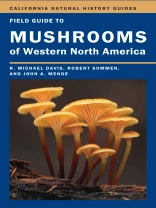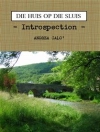California and the Western States are rich in abundant and diverse species of mushrooms. Amateur mushroom collectors and mycologists alike will find over 300 species of the region’s most common, distinctive, and ecologically important mushrooms profiled in this comprehensive field guide. It provides the most up-to-date science on the role of fungi in the natural world, methods to identify species, and locations of mushroom habitats. With excellent color illustrations showing top and side views of mushrooms of the Western States and a user-friendly text, it is informative but still light enough to be carried into the woods. When used to identify mushrooms, keys bring the reader to individual species, with a descriptive text providing cues for identifying additional species. Mushrooms common in urban landscapes are included, which is especially useful for the casual encounter with backyard fungi. The guide also provides a table of both old and new species names, and information on edibility and look-alikes, both dangerous and benign.
A section on mushroom arts and crafts features mushroom photography, painting, philately, spore prints, dyes, and cultivation. The guide also offers a comprehensive list of resources including national field guides, general mushroom books and periodicals, club and society contact information, and web sites.
· Primary descriptions and illustrations of 300 species of mushrooms plus text descriptions of many more.
· Latest word in mushroom taxonomy and nomenclature. Clear discussion of DNA sequencing and new classifications.
· Especially good coverage of southern California and Southwestern mushrooms often neglected in other field guides.
Inhoudsopgave
Preface
1. Introduction
2. What is a Mushroom?
3. Fungal Ecology
4. Collecting Mushrooms
5. Classification
Quick identification guide to major groups
6. General Keys
7. Species Descriptions
8. Fungal Arts and Crafts
9. Mushroom Cultivation
10. Toxins
11. Resources
Appendix 1. Table of spore colors and genera
Appendix 2. Synonyms, name changes, and misapplied names
Glossary
Acknowledgments and Contributors of photographs
Over de auteur
R. Michael Davis is Professor of Plant Pathology at University of California, Davis. Robert Sommer is Distinguished Professor of Psychology Emeritus at University of California, Davis, and the author of Personal Space and Tight Spaces, among other books. John A. Menge is Professor Emeritus of Plant Pathology at University of California, Riverside.












